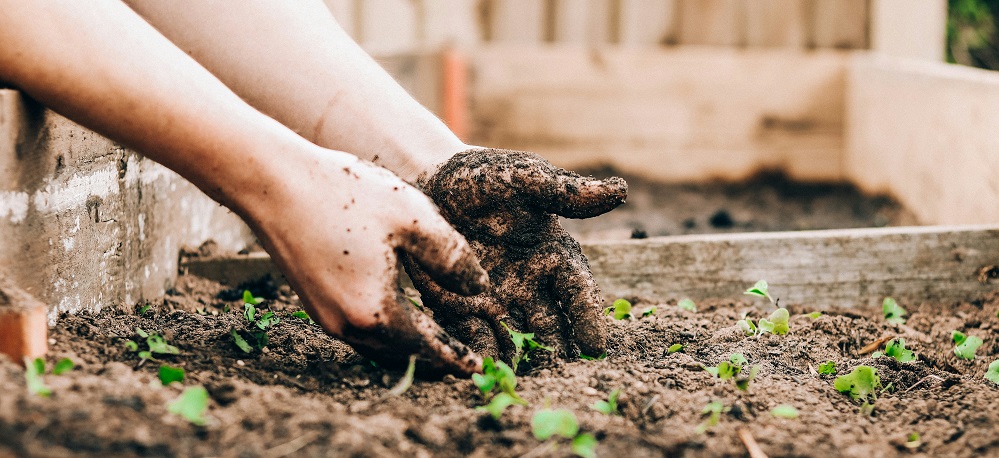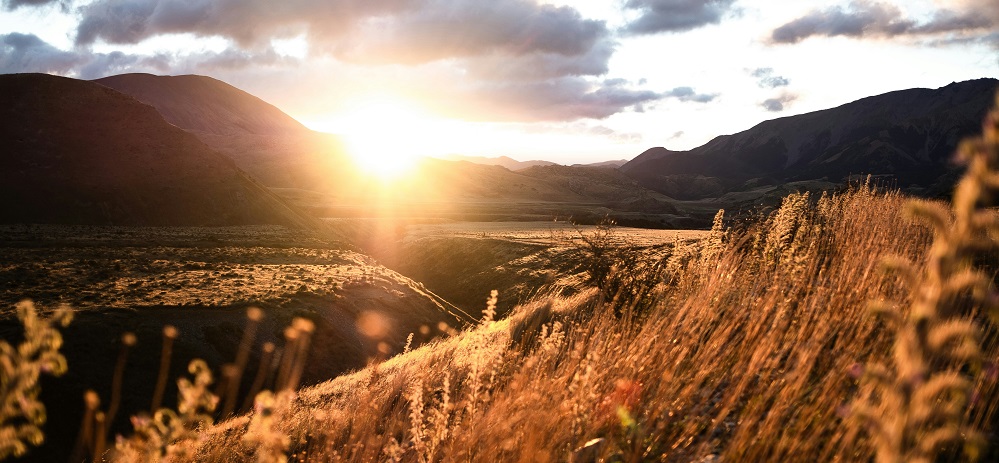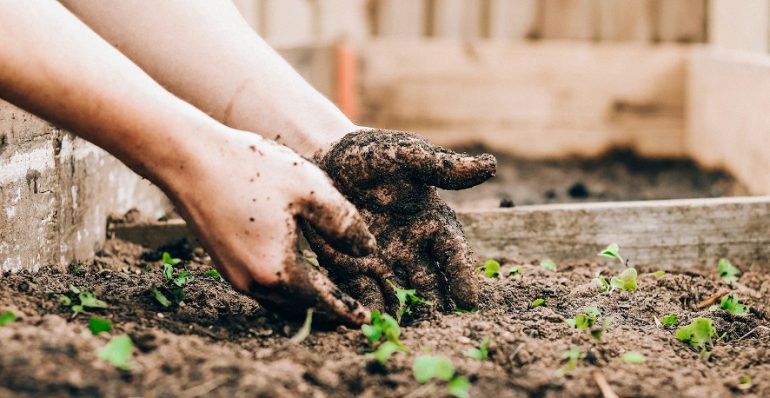Kai, climate and community – the kōrero continues
We had big plans for May 1st — a shared meal and conversation about kai, climate, community in Pōneke to launch the 2025 Kaibosh Annual Appeal. “Kai for our people, our climate, our future” was an event designed for connection, kai and kōrero, featuring a seasonal three-course dinner by Everybody Eats and important conversation led by three amazing speakers: food systems expert Emily King, kai sovereignty and climate justice advocate Moko Morris, and economist Dr Ganesh Ahirao.
But the climate had other ideas.As a red-alert storm blew through Te Whanganui-a-Tara with gale-force winds and 11m waves, we made the call to cancel the event for everyone’s safety.
Still, this kaupapa matters too much to not share with our network. So, we’re bringing the kōrero to you here — online — by sharing our speakers’ reflections and insights on the intersection of kai, climate, community and what shifts are needed in Aotearoa.
In follow up to the cancelled event, we asked Emily, Moko and Ganesh to respond to these patai:
- What are the main reasons our current food system isn’t working well for people and planet?
- What inspiring solutions or changes are you seeing right now?
Read on — as this is food for thought and action.
[In case you missed it, catch up on last blog article: ‘Zero food poverty – will we ever get there’]
Emily King – Food systems expert and author
Emily King is the author of Re-food, Exploring the troubled food system of Aotearoa New Zealand and has over a decade’s experience working in and researching food systems, and helping communities and organisations throughout Aotearoa create positive change.
“Fundamentally I see the main problem as the imbalance of power in the food system and a lack of responsibility and accountability for that across all sectors from production through to consumption.
For example, large corporations control and profit off of farm machinery, seeds, fertilisers and pesticides, while comparatively individual farmers do not benefit in the same ways. Further along the food system, food businesses profit from people selling highly processed and nutritionally void foods, and the regulations seem to be less and less in favour of the public health benefits of good food for the wider population.
At the retail level this plays out with the supermarket duopoly in our country benefiting financially over and above lowering the price of food for families; and the same with food service sectors as fast-food franchises and restaurants profit over healthy local food alternatives. When we combine this concentration of power with increased prices of food globally and not an adequate increase in wages nationally, it is very difficult for people to access affordable healthy food. At the same time the way the food system is currently designed — to feed those in power — is coming at the expense of our freshwater, soil and also impacting climate change through increasing greenhouse gas emissions.
Climate change is also impacting the food system and this will continue with droughts, flooding, and extreme weather events increasing, alongside poor harvests and plants being susceptible to minor alterations in weather patterns, and pests and diseases flourishing.
Unfortunately, groups within the food system are not working together at the moment. My observation is that silos are digging in and not opening up to talk to each other.
This is evident in the conversations and panels within different conferences and those in news articles recently. We had a stint where wider discussions of bringing people together across the food system was an agreed method to solve challenges, but that peaked around Covid-19 and in the last couple of years, I’d say that unfortunately less groups across the food system are talking to each other and coming up with joint solutions.

Solutions currently in Aotearoa are completely grass roots: regenerative agriculture, community food resilience, food rescue, initiatives led by and for iwi and hapu, and these are all locally initiated and community held.
Regenerative agriculture is being driven by farmers and growers yet not taken up at a mainstream level. Community food resilience is being driven by local food networks yet not integrated into the conventional food system. And food rescue agencies are operating like community food hubs, a role that is larger than simply rescuing food and one that many of them are grappling with. Many are looking wider than that as they seek to tackle bigger issues in the food system while getting people fed.
The connection of these groups is not only with each other but to a larger vision of how our food system can change is the way forward.
My challenge to all these groups is to reach out beyond themselves and work with others in different parts of the food system to effect change.”
Moko Morris – Pou Māori, food justice advocate
Moko Morris (Te Aitanga a Mahaki, Te Atiawa) is Pou Māori at Kore Hiakai and a Community Advisor at Wellington City Council, working on Te Anamata ā-Kai o Tō Tātou Tāone | Our City’s Food Future which is a coordinated, integrated approach to supporting a sustainable, equitable, and resilient food system in Wellington. In 2024 she co-authored the Kore Hiakai publication Kai Motuhake, Re-indigenising and Re-localising Food Systems.
“Human induced climate change is laden with examples where those (often corporations) are not penalised for their contribution to the climate crisis and those (often small scale growers, community and farms who may want to transition to organics) are not incentivised to upscale.
Hunger is a logistics issue, there is enough food for all.
- territorial markets can be legislated so that small scale growers have an outlet
- those without transport, deserve to access fresh fruit and veges without travelling
- research and innovation can be targeted to food related activity that supports people and nature
Until we address the underlying causes that exacerbate injustice and equality we will continue to rely on food banks, food rescue and those food responses that feed people with immediate need.
Te Tiriti leadership across every aspect of our food system means examining who has the power, and who can relinquish this to ensure those most in need are being heard. Māori often lament that if we are not at the table, then we are on the ‘menu’… however we don’t want to sit at an oppressive table.
A different type of energy is required where we leave our egos and logos at the door and address the issues at hand, critically understanding what lane I am in, and can I move out of the way for another to do their mahi. We often play nice when we have access to funding but when the funding is scarce we cut across lanes and only centre our own kaupapa at the expense of another.
All around the motu there are examples of communities feeding communities, but the common thread is that it is all being done for aroha. While aroha has its place, until we value food as a human right, and value the rights of nature, our front-line workers will continue to carry secondary trauma, risk burn out and carry the load for food insecure communities.
A national food strategy that is Te Tiriti led can be activated and endorsed by those who are truly committed to addressing the underlying issues. How can we resource transformation rather than funding what just feels safe and familiar? Who holds the power to scale, replicate or fund these plans and are they willing to share it?”
Ganesh Ahirao – Economist and Kaibosh Trustee
Dr Ganesh Ahirao’s professional career in economics has spanned more than 40 years. Most recently, he was Chair of the Productivity Commission Te Kōmihana Whai Hua o Aotearoa. Before then, Ganesh led BERL – a NZ-owned consultancy – to be an Accredited Living Wage employer. Ganesh joined the Kaibosh Board of Trustees in 2024.
“Food security ranks highly – alongside shelter and energy security, thriving eco-systems on a nurturing Papatūānuku, and meaningful participation in and connection to society including a diverse range of opportunities for our moko – in any concept of successful and sustainable communities.
Well, at least it should.
Sadly, the rules driving our economic systems and structures do not seem to value these aspirations. Further, some elements of our economy appear to operate in direct opposition to these goals, with alongside weak guardrails reflecting acceptable economic behaviour.
Some might argue that a desire for food security (and the accompanying aspirations) are “nice-to-haves” but are unrealistic given the costs and challenges faced in today’s economy. Such an argument places the (implied) objectives of today’s economy above those of successful and sustainable community.
I would urge and argue for a reversal of that perspective, such that the objectives of community are prioritised above those of economy. Indeed, I argue that the economy needs to be relegated to being subservient to the needs, demands, aspirations of the communities it serves. In this manner, economic success would be directly measured by its ability to deliver on the aspirations of community. And, currently, by this measure our economy has failed, abysmally. Recognising the source and magnitude of this failure is a great step to recognising the change urgently required.
To get kai for our people we need an economy for our people.
To get kai for our climate we need an economy for our climate.
To get kai for our future we need an economy for our future.
This requires re-writing the rules driving our economic systems and structures to embrace the value of food security (e.g. the right to nutritious food for all, rewarding regenerative processes, penalising waste); and to enable the restoration – and then sustained nurturing – of a truly productive Papatūānuku for today’s and tomorrow’s generations.

Examples promoting redesigned economic systems with re-written rules are already amongst us.
Indigenous communities have led the charge in many places – with Aotearoa being no exception. The revitalisation of whānau and hapū held land Trusts and Incorporations has seen inter-generation kaupapa businesses re-establish and operate across the motu.
The centrality of accepting business objectives that go beyond conventional production, revenue, or profit metrics cannot be overstated. Where feeding and providing job opportunities for future generations of whānau and hapū members are explicit objectives, business operations and decisions (and hence economic activity) look significantly different.
In a similar but different vein, social enterprise and for-purpose community organisations also provide example structures for an economic world where kai for our people, climate, and future becomes well within our grasp.”
Image credits:
- Hands in the soil image by Sandie Clark, Unsplash
- Fern, pikopiko image by J Batten
- Landscape by Martin Schmidli, Unsplash






